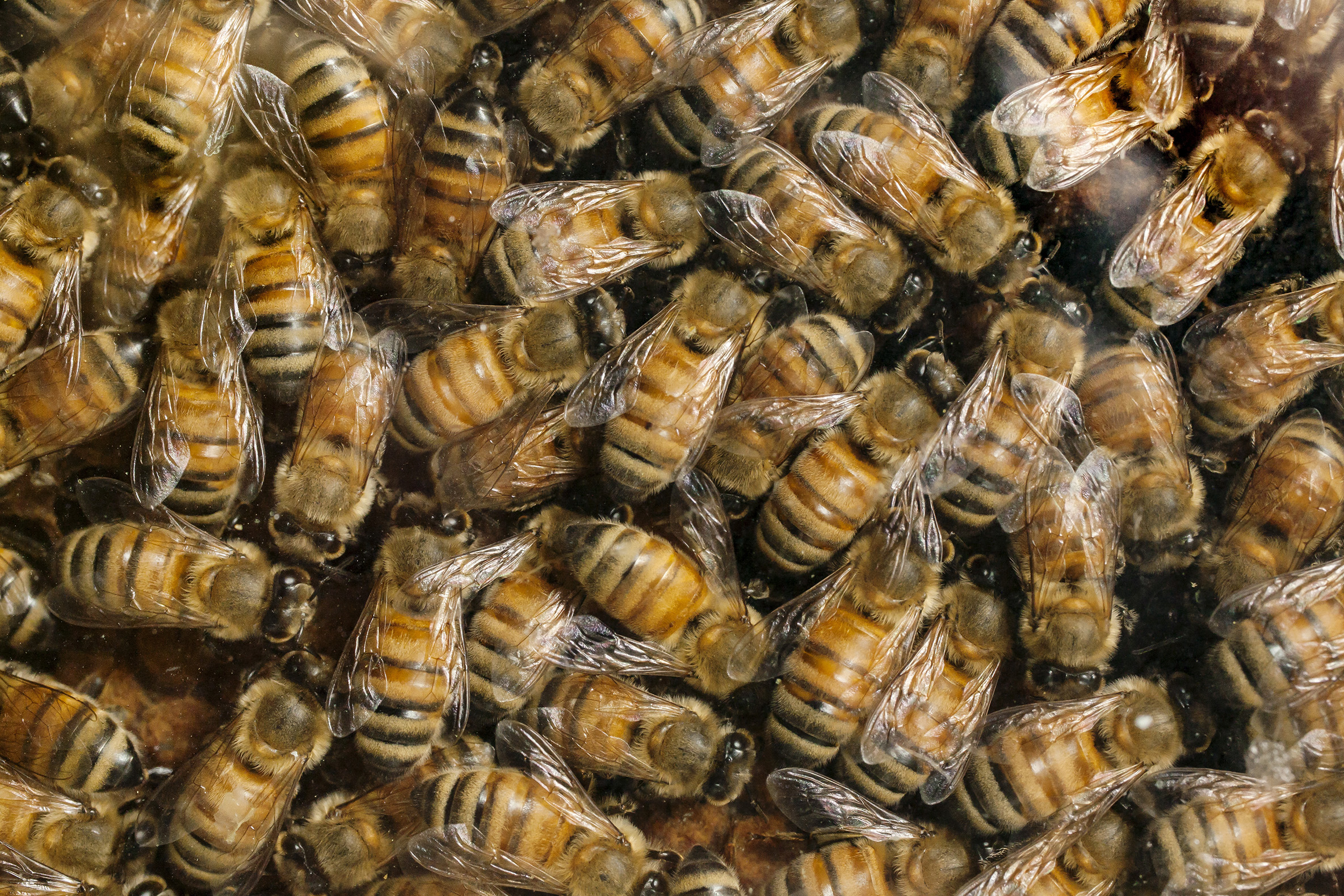2019-10-03
- Every solution is created to solve a problem, whether it’s a quick fix or a life-altering change. For professor of entomology Esther Ngumbi, going to school was her solution to feeding her family.
- 2019-09-30 - Making important commercial or financial decisions can be a very difficult task, especially with a variety of perspectives and stakeholders to consider. Dr. Marianne Alleyne, assistant professor in entomology, and Molly Sturgis, graduate student researcher in industrial and enterprise systems engineering, have turned to bees to see what kinds of insights could be translated to human decision-...
- 2019-09-12 - Five University of Illinois professors at the Urbana-Champaign campus, including Brian Allan, have been named University Scholars in recognition of their excellence in teaching, scholarship and service. They will be honored at a Sept. 12 ceremony at the I Hotel and Conference Center, 1900 S. First St., Champaign.
- 2019-09-10 - While the brains of honey bees are tiny compared to those of humans, the insects are capable of some surprisingly advanced thinking.
- 2019-08-14 - In Kenya, cattle reduce tick populations and help protect wildlife
- 2019-06-20 - Struggling to right themselves when stranded on their backs, click beetles have a remarkable correction strategy. Arching the joint between the front and second section of the thorax, the beetles suddenly release the deformation and spring spontaneously into the air. Entomologist Marianne Alleyne collaborated with...
- 2019-06-19 - Congratulations to Scott Clem, doctoral candidate in Dr. Alex Harmon-Threatt's lab, for being awarded the USDA National Institute of Food and Agriculture (NIFA) Education and Workforce Development (EWD) Predoctoral Fellowship for $119,990 (award no. 2019-67011-29504). This is a two-year fellowship coupled with funding to continue his research on hover fly (Diptera:...
- 2019-05-31 - The risk of some mosquito-borne diseases can go up with increased rainfall, entomology professor Brian Allan said. However, excess rainfall can reduce the number of mosquitos that hatch in stormwater catch basins, such as the Culex species that carry West Nile virus.
- 2019-04-17 - A new online tool and community, called Beescape, enables beekeepers, or anyone interested in bees, to understand the specific stressors to which the bees in their managed hives, home gardens or farms are exposed, according to researchers at the University of Illinois, through a collaboration with Penn State University.
- 2019-03-12 - Study explores little-understood effects of soil exposure on subterranean colonies. Results from a new study suggest that bees might be exposed to pesticides in more ways than we thought, and it could impact their development significantly.
- 2019-02-22 - This soldier termite and related species are called nasutes. Their mouthparts are fused to form a projection that squirts defensive chemicals to repel marauders attacking the colony, in contrast to other types of termites that have long, swordlike mandibles. Termites are the theme of the annual Insect Fear Film Festival on Feb. 23.
- 2019-02-05 - There’s plenty of sweet irony in a new partnership between Illinois and St. Louis-based Anheuser-Busch, LLC, that will raise money for bee research at the university. Anheuser-Busch has pledged $5,000 to The Healthy Bee Fund at Illinois. In addition, the company will donate $1 to the fund for every case sold of b, a new alcoholic honey beverage scheduled to go on sale in the Northeast U.S. in...
- 2018-12-12 - The mandibles of the Dracula ant, Mystrium camillae, are the fastest known moving animal appendages, snapping shut at speeds of up to 90 meters per second.
- 2018-11-05 - New research reveals that Aspergillus flavus, a fungus that produces carcinogenic aflatoxins that can contaminate seeds and nuts, has a multilegged partner in crime: the navel orangeworm caterpillar, which targets some of the same nut and fruit orchards afflicted by the fungus. Scientists report in the Journal of Chemical Ecology that the two pests work in concert to overcome plant...
- 2018-10-31 - A study of 3,588 square kilometers of privately owned land in central Kenya offers evidence that humans and their livestock can, in the right circumstances, share territory with zebras, giraffes, elephants and other wild mammals – to the benefit of all.














